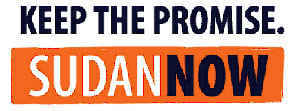
Last week, I sat in on a great meeting with a couple of Enough’s contacts who are directly involved in the Darfur peace talks in Doha. We discussed a few of the complex issues related to the peace process, and as you might imagine, we asked what we could do to help on the advocacy side.
One person in the meeting put it quite bluntly: If peace in Darfur is the building we are trying to build, then we must recognize that we have no architect and no blueprint (some might say too many architects, too many poorly-constructed blueprints), and we need to make sure that activists understand why this is important and have them call on the U.S. government to put its efforts behind creating a structure that can succeed.
But let’s back up for a minute. Why is the Doha peace process the right tool to create peace in Darfur?
Look at South Sudan: In January, Southern Sudanese held a free, fair and credible referendum and voted to become an independent country, beginning on July 9. How did we get there? In large part, it was thanks to the Comprehensive Peace Agreement negotiated and signed in Naivasha, Kenya in 2005. The United States was a crucial player in a streamlined process backed by the wider international community – key characteristics that led to the success of the negotiations and a peace deal.
So the short answer is that we want to recreate the high-level, international engagement that helped convince warring parties to sign a truce in Naivasha. We believe the solution for peace in Darfur is political and will be solved through creative, relentless, high-level diplomacy. And right now in Doha, we’ve got a shot at making that happen, with many of the key players at the table, ready to negotiate and, according to those close to the talks, in agreement on 95 percent of the substance of what needs to be negotiated.
It might sound simple, but when we get down to the details, it’s a bit more difficult. A number of things to come together: The right mediator with the skills to lead the process according to a plan agreed to by all sides and involving all the rebel groups, among other factors.
And it goes without saying (though it’s worth emphasizing) that the Government of Sudan must stop attacking civilians in Darfur. The international community cannot continue to ignore these attacks, or any other attacks made by various armed actors in the region.
All of this leads me to the best part: What we’re going to do about it. You may have seen our Roadmap for Peace in Darfur publication from February. This peace process is going to take a while, and as activists, we’re going to have to stick it out, stick together, and continue raising heck about it with the Obama administration and other world leaders.
Today, we hope you’ll join Sudan Now by signing our petition to President Obama’s right-hand-foreign-policy-man Denis McDonough, to encourage him to address key issues related to the peace process.
Please sign, get your friends to sign, and post on Facebook and Twitter.
Then stay tuned, because there’s much more to come, and we’ll need you every step of the way.

